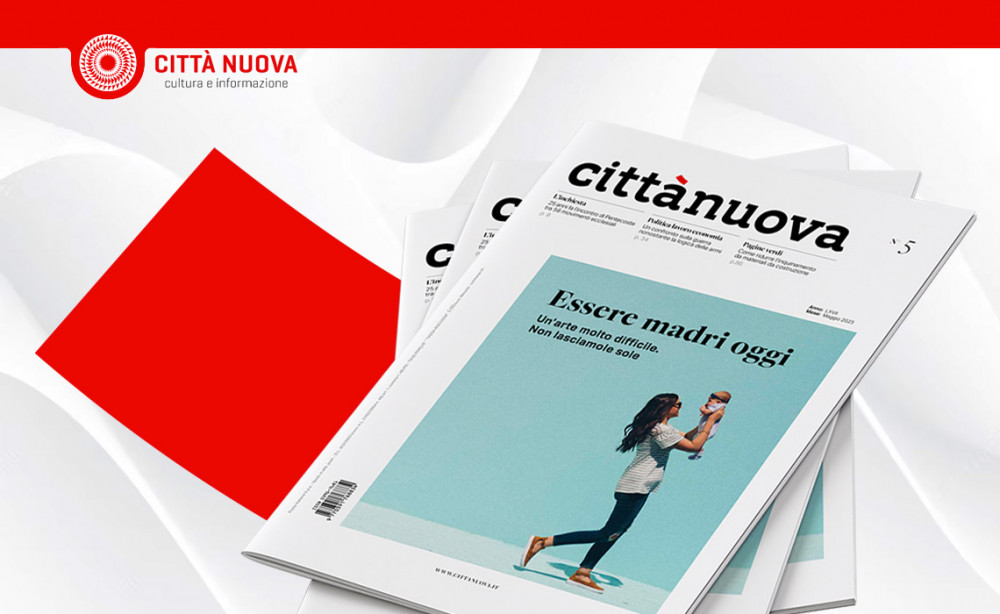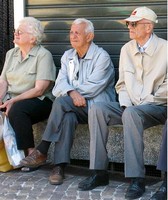stdClass Object
(
[id] => 16547
[title] => Encyclicals' impact on the economy
[alias] => encyclicals-impact-on-the-economy
[introtext] => By Luigino Bruni
Published in Città Nuova n. 5/2013 on March 10, 2013
 In our hedonistic, consumeristic, and finance centric culture, love may be the most used and worn out word. However, Benedict XVI made it the core of his social doctrine. Deus Caritas est and Caritas in Veritate, are, respectively, his first and last encyclicals.
In our hedonistic, consumeristic, and finance centric culture, love may be the most used and worn out word. However, Benedict XVI made it the core of his social doctrine. Deus Caritas est and Caritas in Veritate, are, respectively, his first and last encyclicals.
Despite being discarded by our society, love was chosen by Pope Benedict to be the cornerstone of the Church and his reign as pope, from beginning to end. This love is called charitas, a latin word carrying a long and intriguing past. It was used for trading (it meant expensive or valuable) before the first Latin Christians adopted it to translate the word agape.
[fulltext] => This Greek word was adopted by the New Testament's authors to express the absolute novelty of Christian love. The words Eros and philia (friendship), which were used back then, were simply not appropriate. In fact, agape, as opposed to eros, includes love for that which is repulsive and unfriendly; it doesn't expect anything in return. Nonetheless, in his first encyclical the pope teaches us that agape isn't contrary to eros and philia, but rather is the result of their utmost development. One should keep this concept in mind to understand Caritas in Veritate. In that encyclical he admits that the market doesn't exclude gifts and contracts that include graciousness. It is important to notice though the distinction between gifts versus presents, and graciousness versus things free of charge (no cost). These are commonly and mistakenly considered to be synonyms.
The love previously mentioned is central to Benedict XVI's social, anthropological, and theological encyclicals. These true social and economic letters could only come from a true theologist. Pope Ratzinger stated more than once that love-charitas is the principle for true socialization and for the economy (no other type of love). Such an idea triggered a cultural revolution, which, due to its enormous area of influence, will only be entirely understood in the future.
As an economist of communion, I'm tremendously grateful to Pope Benedict for recognizing charitas as the core of economics. By doing so he elevated its importance to new levels. As the crisis broke out and the economy strayed far from the principle of love, St. Peter's successor appealed for the economy, the labor market, banks, and enterprises to live up to their original and precious vocation.. Today, thanks to him, many people can experience love in their work and in the economy. This theologist pope dared to combine the market with love, contracts with gifts, justice with graciousness, and the economy with communion.
In short, this pope was another great Benedict. He gave us all a new ethical principle, as important as his predecessor's “ora” and “labora”. He gave lay Christians a beautiful life path by naming the economy love. He sent out a message of great hope to workers and to the labor market during the crisis. Therefore, by addressing the economy Benedict XVI changed it forever. Perhaps some people didn't read the encyclicals due to our incapability to disseminate them efficiently, but even they were affected by the changes caused by his writings.
In everyone's name I would like to thank you Pope Joseph, for your words that filled our professions and everyday life with dignity. Your message is a love song to humans as beings made of bread and salt (salary). We are such concrete creatures when we love, think or pray as well; when we pray (“ora”) and work (“labora”).
Translated by Cristian Sebok
[checked_out] => 0
[checked_out_time] => 0000-00-00 00:00:00
[catid] => 890
[created] => 2013-03-26 22:10:57
[created_by] => 64
[created_by_alias] => Luigino Bruni
[state] => 1
[modified] => 2020-08-23 20:45:17
[modified_by] => 609
[modified_by_name] => Super User
[publish_up] => 2013-03-26 22:15:08
[publish_down] => 0000-00-00 00:00:00
[images] => {"image_intro":"","float_intro":"","image_intro_alt":"","image_intro_caption":"","image_fulltext":"","float_fulltext":"","image_fulltext_alt":"","image_fulltext_caption":""}
[urls] => {"urla":false,"urlatext":"","targeta":"","urlb":false,"urlbtext":"","targetb":"","urlc":false,"urlctext":"","targetc":""}
[attribs] => {"article_layout":"","show_title":"","link_titles":"","show_tags":"","show_intro":"","info_block_position":"","info_block_show_title":"","show_category":"","link_category":"","show_parent_category":"","link_parent_category":"","show_associations":"","show_author":"","link_author":"","show_create_date":"","show_modify_date":"","show_publish_date":"","show_item_navigation":"","show_icons":"","show_print_icon":"","show_email_icon":"","show_vote":"","show_hits":"","show_noauth":"","urls_position":"","alternative_readmore":"","article_page_title":"","show_publishing_options":"","show_article_options":"","show_urls_images_backend":"","show_urls_images_frontend":"","helix_ultimate_image":"","helix_ultimate_image_alt_txt":"","helix_ultimate_article_format":"standard","gallery":"","helix_ultimate_audio":"","helix_ultimate_video":"","link_title":"","link_url":"","quote_text":"","quote_author":"","post_status":""}
[metadata] => {"robots":"","author":"","rights":"","xreference":""}
[metakey] =>
[metadesc] =>
[access] => 1
[hits] => 4434
[xreference] =>
[featured] => 0
[language] => en-GB
[on_img_default] => 1
[readmore] => 3107
[ordering] => 46
[category_title] => EN - CN
[category_route] => economia-civile/it-editoriali-vari/it-cn
[category_access] => 1
[category_alias] => en-cn
[published] => 1
[parents_published] => 1
[lft] => 81
[author] => Luigino Bruni
[author_email] => ferrucci.anto@gmail.com
[parent_title] => IT - Editoriali vari
[parent_id] => 893
[parent_route] => economia-civile/it-editoriali-vari
[parent_alias] => it-editoriali-vari
[rating] => 0
[rating_count] => 0
[alternative_readmore] =>
[layout] =>
[params] => Joomla\Registry\Registry Object
(
[data:protected] => stdClass Object
(
[article_layout] => _:default
[show_title] => 1
[link_titles] => 1
[show_intro] => 1
[info_block_position] => 0
[info_block_show_title] => 1
[show_category] => 1
[link_category] => 1
[show_parent_category] => 1
[link_parent_category] => 1
[show_associations] => 0
[flags] => 1
[show_author] => 0
[link_author] => 0
[show_create_date] => 1
[show_modify_date] => 0
[show_publish_date] => 1
[show_item_navigation] => 1
[show_vote] => 0
[show_readmore] => 0
[show_readmore_title] => 0
[readmore_limit] => 100
[show_tags] => 1
[show_icons] => 1
[show_print_icon] => 1
[show_email_icon] => 1
[show_hits] => 0
[record_hits] => 1
[show_noauth] => 0
[urls_position] => 1
[captcha] =>
[show_publishing_options] => 1
[show_article_options] => 1
[save_history] => 1
[history_limit] => 10
[show_urls_images_frontend] => 0
[show_urls_images_backend] => 1
[targeta] => 0
[targetb] => 0
[targetc] => 0
[float_intro] => left
[float_fulltext] => left
[category_layout] => _:blog
[show_category_heading_title_text] => 0
[show_category_title] => 0
[show_description] => 0
[show_description_image] => 0
[maxLevel] => 0
[show_empty_categories] => 0
[show_no_articles] => 1
[show_subcat_desc] => 0
[show_cat_num_articles] => 0
[show_cat_tags] => 1
[show_base_description] => 1
[maxLevelcat] => -1
[show_empty_categories_cat] => 0
[show_subcat_desc_cat] => 0
[show_cat_num_articles_cat] => 0
[num_leading_articles] => 0
[num_intro_articles] => 14
[num_columns] => 2
[num_links] => 0
[multi_column_order] => 1
[show_subcategory_content] => -1
[show_pagination_limit] => 1
[filter_field] => hide
[show_headings] => 1
[list_show_date] => 0
[date_format] =>
[list_show_hits] => 1
[list_show_author] => 1
[list_show_votes] => 0
[list_show_ratings] => 0
[orderby_pri] => none
[orderby_sec] => rdate
[order_date] => published
[show_pagination] => 2
[show_pagination_results] => 1
[show_featured] => show
[show_feed_link] => 1
[feed_summary] => 0
[feed_show_readmore] => 0
[sef_advanced] => 1
[sef_ids] => 1
[custom_fields_enable] => 1
[show_page_heading] => 0
[layout_type] => blog
[menu_text] => 1
[menu_show] => 1
[secure] => 0
[helixultimatemenulayout] => {"width":600,"menualign":"right","megamenu":0,"showtitle":1,"faicon":"","customclass":"","dropdown":"right","badge":"","badge_position":"","badge_bg_color":"","badge_text_color":"","layout":[]}
[helixultimate_enable_page_title] => 1
[helixultimate_page_title_alt] => Città Nuova
[helixultimate_page_subtitle] => Civil Economy
[helixultimate_page_title_heading] => h2
[page_title] => Città Nuova
[page_description] =>
[page_rights] =>
[robots] =>
[access-view] => 1
)
[initialized:protected] => 1
[separator] => .
)
[displayDate] => 2013-03-26 22:10:57
[tags] => Joomla\CMS\Helper\TagsHelper Object
(
[tagsChanged:protected] =>
[replaceTags:protected] =>
[typeAlias] =>
[itemTags] => Array
(
)
)
[slug] => 16547:encyclicals-impact-on-the-economy
[parent_slug] => 893:it-editoriali-vari
[catslug] => 890:en-cn
[event] => stdClass Object
(
[afterDisplayTitle] =>
[beforeDisplayContent] =>
[afterDisplayContent] =>
)
[text] => By Luigino Bruni
Published in Città Nuova n. 5/2013 on March 10, 2013
 In our hedonistic, consumeristic, and finance centric culture, love may be the most used and worn out word. However, Benedict XVI made it the core of his social doctrine. Deus Caritas est and Caritas in Veritate, are, respectively, his first and last encyclicals.
In our hedonistic, consumeristic, and finance centric culture, love may be the most used and worn out word. However, Benedict XVI made it the core of his social doctrine. Deus Caritas est and Caritas in Veritate, are, respectively, his first and last encyclicals.
Despite being discarded by our society, love was chosen by Pope Benedict to be the cornerstone of the Church and his reign as pope, from beginning to end. This love is called charitas, a latin word carrying a long and intriguing past. It was used for trading (it meant expensive or valuable) before the first Latin Christians adopted it to translate the word agape.
[jcfields] => Array
(
)
[type] => intro
[oddeven] => item-odd
)







 The economy has extreme need of resurrection. Every resurrection is preceded and prepared by a crisis, by a passage or change: one does not resurrect if first, in some way, one does not die. In the economic system that we have produced in this last century there is, in fact, something that is clearly dying out, but there is also something new which is emerging on the horizon, even if we need “eyes of resurrection” to be able to see it, and then to recognize it for what it really is; that is, the dawn of a new day.
The economy has extreme need of resurrection. Every resurrection is preceded and prepared by a crisis, by a passage or change: one does not resurrect if first, in some way, one does not die. In the economic system that we have produced in this last century there is, in fact, something that is clearly dying out, but there is also something new which is emerging on the horizon, even if we need “eyes of resurrection” to be able to see it, and then to recognize it for what it really is; that is, the dawn of a new day. There is an overwhelming mass of great injustice toward the elderly. Until a few decades ago the traditional structure of Western society was based on a rule of reciprocity: as adults they gave assistance to our parents, and once they themselves became older they would receive care from their children (who in turn had received care from their parents during their childhood and youth). And the balance between "giving" and "receiving" care broke even. All this then was a political and social representation in the pension system, where the pension received by an elderly was not his savings as a young man, but a sort of return and appreciation of the young people towards them.
There is an overwhelming mass of great injustice toward the elderly. Until a few decades ago the traditional structure of Western society was based on a rule of reciprocity: as adults they gave assistance to our parents, and once they themselves became older they would receive care from their children (who in turn had received care from their parents during their childhood and youth). And the balance between "giving" and "receiving" care broke even. All this then was a political and social representation in the pension system, where the pension received by an elderly was not his savings as a young man, but a sort of return and appreciation of the young people towards them. From time to time, in recent years, the market rekindles the debate on its limits. We return to wonder whether it is right, opportune and possible to create official and transparent markets for organ trafficking, legalizing commercial surrogacy, legalizing prostitution, etc., issues that for many generate anger and rejection.
From time to time, in recent years, the market rekindles the debate on its limits. We return to wonder whether it is right, opportune and possible to create official and transparent markets for organ trafficking, legalizing commercial surrogacy, legalizing prostitution, etc., issues that for many generate anger and rejection. The financial crisis in Ireland, following that of Greece, does nothing but remind us that the West has gone too far into debt. The rescue of many banks and businesses last year, following the crisis, led especially to a shift of debt from the private to the public sector.
The financial crisis in Ireland, following that of Greece, does nothing but remind us that the West has gone too far into debt. The rescue of many banks and businesses last year, following the crisis, led especially to a shift of debt from the private to the public sector.
 One of the most important elements in the birth of Western civilization was the opposition between fortune and virtue. In the world of Greek myths, a tight relationship between happiness and fortune existed: he who had a good (eu) god (daimon) on his side was considered happy. Socrates and the long season of Greek philosophy affirmed, instead, that happiness, human flourishing, depends on virtue and not on fortune. Virtue beats bad luck. This is the basis on which all personal and collective ethics in Europe has been built. And thanks to the great Christian event, Europe has affirmed that good living, happiness, depends on the capacity to cultivate virtue, on our commitment and on our responsibility.
One of the most important elements in the birth of Western civilization was the opposition between fortune and virtue. In the world of Greek myths, a tight relationship between happiness and fortune existed: he who had a good (eu) god (daimon) on his side was considered happy. Socrates and the long season of Greek philosophy affirmed, instead, that happiness, human flourishing, depends on virtue and not on fortune. Virtue beats bad luck. This is the basis on which all personal and collective ethics in Europe has been built. And thanks to the great Christian event, Europe has affirmed that good living, happiness, depends on the capacity to cultivate virtue, on our commitment and on our responsibility.  In almost all airports of the world, you can pay to get Internet service. In Zurich, with one Euro, you can be connected for 4 minutes: almost all the booths were available. A few days ago, in Porto, I found free Internet service in the airport. I waited in line for more than an hour, and then I gave up because those using the booths were not moving. Maybe if the cost in Zurich was a little less, and in Porto a little more, the efficiency of both systems would improve.
In almost all airports of the world, you can pay to get Internet service. In Zurich, with one Euro, you can be connected for 4 minutes: almost all the booths were available. A few days ago, in Porto, I found free Internet service in the airport. I waited in line for more than an hour, and then I gave up because those using the booths were not moving. Maybe if the cost in Zurich was a little less, and in Porto a little more, the efficiency of both systems would improve.  Why do people go to vote?
Why do people go to vote?  postal service, etc...). However, often, very often, what happens is that these events take place in half-empty auditoriums, and of the millions of people reached, only a few, sparse groups arrive. How is this possible? Reducing costs is not always positive from a social point of view. When we receive an invitation to a conference, together will hundreds of other people, perhaps with an anonymous letterhead - "Respectable Sir/Madame" - we´re well conscious that that invitation only cost a few seconds of time, and this is why it makes us indifferent. Instead,
postal service, etc...). However, often, very often, what happens is that these events take place in half-empty auditoriums, and of the millions of people reached, only a few, sparse groups arrive. How is this possible? Reducing costs is not always positive from a social point of view. When we receive an invitation to a conference, together will hundreds of other people, perhaps with an anonymous letterhead - "Respectable Sir/Madame" - we´re well conscious that that invitation only cost a few seconds of time, and this is why it makes us indifferent. Instead, 